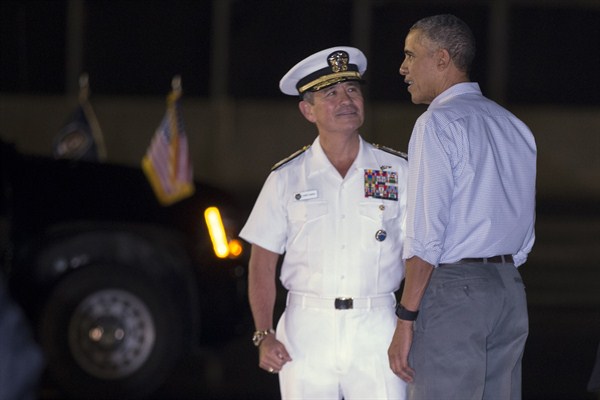The World War I-era French Prime Minister Georges Clemenceau once famously declared that war is too important to be left to the generals. The same, it appears, can be said of admirals.
Last week, the Navy Times ran a blockbuster story revealing that the top U.S. military commander in the Pacific, Adm. Harry Harris, and the combatant command he leads, U.S. Pacific Command (PACOM), are not happy with the White House’s approach to dealing with China’s adventurism in the South China Sea. According to the Navy Times, Harris is “arguing behind closed doors for a more confrontational approach to counter and reverse China’s strategic gains” there. He is, says the paper, “proposing a muscular U.S. response to China’s island-building that may include launching aircraft and conducting military operations within 12 miles of these man-made islands.” Harris’ efforts, however, are meeting resistance from the White House “at nearly every turn.”
Now, on one hand, what we have here is not unusual. Military officials often leak stories like these when they feel that their views are not being heard in the halls of power in Washington or when they are on the wrong side of a policy decision. Anyone who followed the Afghan surge debate in 2009 will remember the steady barrage of leaks from military officials intended to pressure their higher-ups in the Pentagon and the White House. When it comes to PACOM, these sorts of stories are likewise becoming standard operating procedure, and they are not always done off the record.

